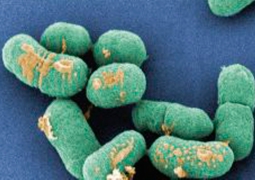
The Department of Health has committed itself to assist the families of the 180 people who died from food-borne disease listeriosis, including advise in litigation against big food production companies, Health Minister Dr Aaron Motsoaledi told the National Assembly today.
Minister Motsoaledi was briefing Members of Parliament on the recent outbreak of listeriosis, whose source has been traced to ready to eat foods that include polony, Russians, Vienna and other forms of cold meats.
He said the it was important for Members of Parliament to have all the facts to help give clarity to their constituencies and also help identify gaps in various legislative tools so to avoid this type of situation in future.
“We are prepared to help the families in whatever way, including giving them information and data and advice if they so wish to litigate,” the Minister said.
In his statement to the National Assembly, Minister Motsoaledi said most cases of listeriosis were found to be in Gauteng at 62%, followed by Western Cape at 13%, and KwaZulu-Natal at 7%. Hence these three provinces alone accounted for 82% of the total infections.
He said for the past 40 years, listeriosis was not a notifiable disease in South Africa, which means that health workers did not have to inform any authority on encountering a person with the disease.
“Hence there was no central data in any part of the country where people could refer to. For this reason, when an outbreak occurs it was not going to be easy to pick it up.”
Although anyone of us can get listeriosis, those who are highly vulnerable are people in four categories, namely: pregnant women; neonates (first 28 days of life); elderly above 65 years of age and people with suppressed immunity like people living with HIV and Aids, diabetes mellitus, cancer, chronic lung disease, and chronic kidney disease.
People in chemotherapy or people who have undergone transplants and are on immunosuppressive therapy to avoid organ rejection, are also at risk.
The Minister said the disease occurs annually in our country and doctors typically see 60 to 80 cases per annum and this has been the case for the past 40 years.
“The disease is treatable with an antibiotic called Ampicillin which is wildly available in our health facilities. Nevertheless, it is a very virulent disease and hence it can cause a lot of damage,” the Minister said.
In December last year, it became evident that listeriosis now qualifies to be a notifiable disease in at least two criteria, and for this reason, Minister Motsoaledi said the Department of Health introduced a new policy of making listeriosis a notifiable disease.
The Chairperson of the Portfolio Committee on Health, Ms Lindelwa Dunjwa, said the big multinationals in the food production sectors, in whose samples listeriosis was found, must take responsibility for the outbreak of the disease.
National Assembly Member, Ms Evelyn Wilson, said South Africa recorded the world’s largest record of listeriosis outbreak and it “was not a record to be proud of”.
She also commended the National Institute for Communicable Diseases for its investigation and tracing possible sources of the disease.
She also blamed the outbreak on the shortage of environmental health inspectors, saying the tragedy could have been avoided if food factories were inspected every three months.
“When last did health inspectors deal with the many spaza shops outside our schools selling food to our children?” she asked.
Another Member of Parliament, Ms Elsabe Ntlangwini, said the food production companies must come to Parliament to explain why they did not follow food safety regulations.
“The fact of the matter remains that 180 people died in the hands of unscrupulous companies which prioritise profits over the health and well-being of our people, and it is sad that no one is likely to be held accountable. This should have never happened, one life lost to a food-borne disease is one life too many, these companies also need to be prosecuted,” she said.
By Sakhile Mokoena
8 March 2018

